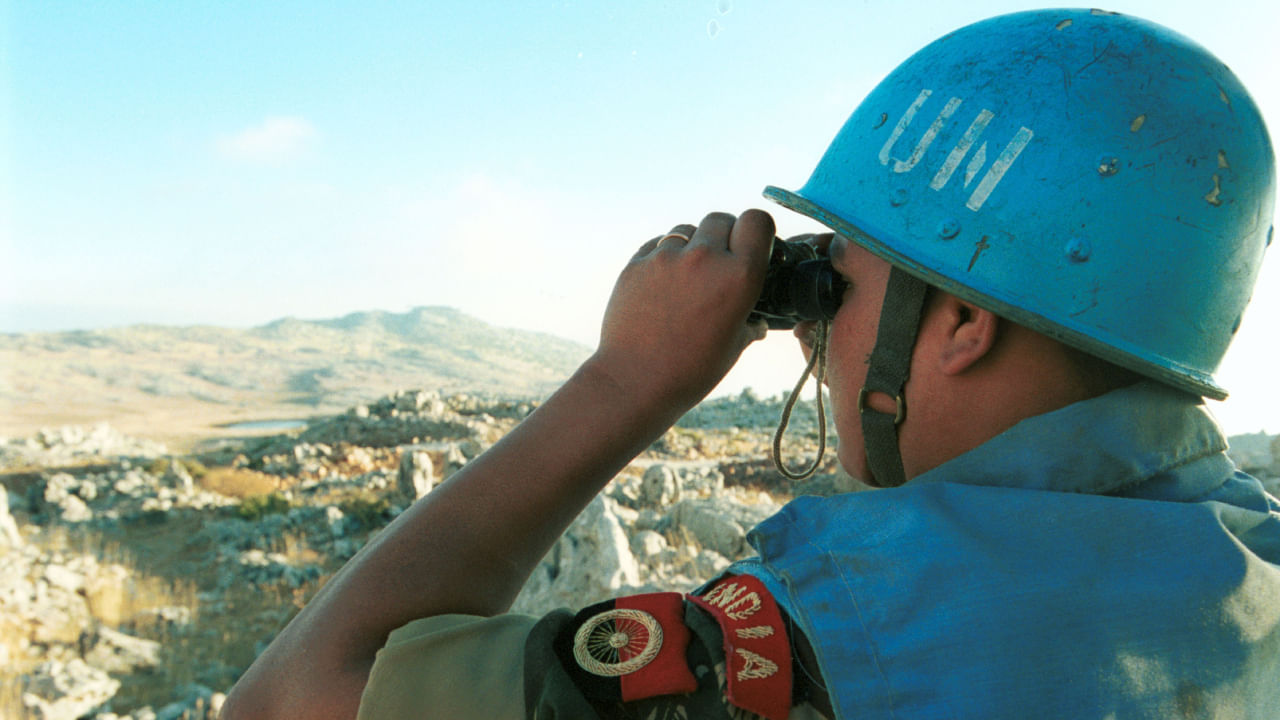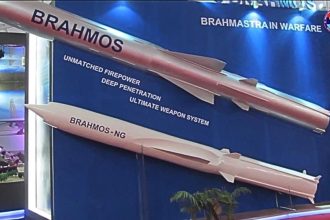
New Delhi: The International Day of United Nations Peacekeepers is observed every year on May 29. The day is observed to pay tribute to all men and women who have served and continue to serve in the United Nations peacekeeping operations for their dedication, professionalism and courage. The day also honours the memory of those who have lost their lives in the cause of peace.
India has a distinguished and long history of serving in the United Nations peacekeeping operations. India believes in non-violence, a principle promoted by Mahatma Gandhi. This belief fits well with the United Nations’ goal of encouraging global peace. It comes from the ancient idea of “Vasudhaiva Kutumbakam”, which means that the whole world is one family. This idea highlights the interconnectedness of all and the importance of living in harmony and peace.
In this article, let us look at how India has contributed to UN peacekeeping over the years.
Two Indian peacekeepers to be honoured posthumously
The United Nations will honour two Indian peacekeepers who died while serving under its flag last year. Brigadier General Amitabh Jha, who was with the UN Disengagement Observer Force, and Havildar Sanjay Singh, who served with the UN Stabilization Mission in the Democratic Republic of Congo, will receive the Dag Hammarskjold medal posthumously. A ceremony will take place on May 29 to mark International Day of UN Peacekeepers.
India’s Contribution to UN Peacekeeping
Since the 1950s, India has deployed over 290,000 peacekeepers to more than 50 missions worldwide. This makes India one of the largest contributor to UN peacekeeping efforts. Today, over 5,000 Indian troops are active in nine of the 11 ongoing missions. They often work in dangerous situations, committed to maintaining global peace and security. Tragically, nearly 180 Indian peacekeepers have lost their lives. Their bravery and commitment will always be remembered.
India aims to assist other countries in the Global South in enhancing their peacekeeping capabilities. The Centre for UN Peacekeeping offers training and capacity-building programmes, including special courses for women peacekeepers. Peacekeeping is a central component of India’s foreign policy, which prioritises dialogue, diplomacy and global cooperation. India places a high value on South-South cooperation and actively promotes peace and security in developing countries. Indian peacekeepers have worked in various challenging environments, making significant contributions to peace and security in numerous regions.
Some of the key UN peacekeeping missions where India has been involved:
| Mission Name | Location | Year | India’s Contribution |
| UN Mission in South Sudan (UNMISS) | South Sudan | 2012-Present | Infantry battalion, medical personnel, and engineering units |
| UN Organization Stabilization Mission in the Democratic Republic of the Congo (MONUSCO) | DR Congo | 2010-Present | Infantry battalions, medical units, and support staff |
| UN Mission in the Golan Heights (UNDOF) | Golan Heights | 2006-Present | Logistics Battalion with 188 personnel for logistics security |
| UN Mission in Sudan (UNMIS/UNMISS) | Sudan/South Sudan | 2005-Present | Battalion groups, engineer company, Signal Company, hospitals, military observers (MILOBs) and staff officers (SOs) |
| UN Organization Mission in the Democratic Republic of the Congo (MONUC/MONUSCO) | DR Congo | 2005-Present | Infantry Brigade Group (three battalions, including RDB), hospital, MILOBs, SOs, and two FPUs |
| UN Interim Force in Lebanon (UNIFIL) | Lebanon | 1998-Present | Infantry battalion group with 762 personnel and 18 staff officers |
| UN Mission in Liberia (UNMIL) | Liberia | 2007-16 | Deployed both male and female FPUs |
| UN Mission in Ethiopia and Eritrea (UNMEE) | Ethiopia-Eritrea | 2006-08 | Contributed an infantry battalion group, an engineer company, and a force reserve company |
| UN Stabilization Mission in Haiti (MINUSTAH) | Haiti | 2004-17 | Contributed Formed Police Units (FPUs) from various police forces |
| UN Mission in Sierra Leone (UNAMSIL) | Sierra Leone | 1999-2001 | Deployed infantry battalions, engineer companies, and other support elements |
| UN Angola Verification Mission (UNAVEM) | Angola | 1989-99 | Provided military observers and staff officers |
| UN Assistance Mission for Rwanda (UNAMIR) | Rwanda | 1994-96 | Contributed medical personnel and logistical support |
| UN Operation in Somalia (UNOSOM II) | Somalia | 1993-94 | Deployed an Army Brigade Group and four Navy battleships |
| UN Operation in the Congo (ONUC) | Congo | 1960-64 | Deployed two brigades to counter secession and re-integrate the country |
| UN Emergency Force (UNEF I) | Middle East | 1956-67 | Contributed to an infantry battalion and other support elements |
| Control of Indo-China | Indo-China (Vietnam, Cambodia, Laos) | 1954-70 | Provided an infantry battalion and supporting staff for monitoring ceasefire and repatriation of prisoners of war |
| UN Operation in Korea | Korea | 1950-54 | Provided medical cover to UN forces, chaired the Neutral Nations Repatriation Commission |
Source: PIB
India has deployed staff officers, Experts on Missions, Military Observers, and Independent Police Officers to key UN peacekeeping missions. These missions include the United Nations Operation in Côte d’Ivoire (UNOCI), the United Nations Assistance Mission in Afghanistan (UNAMA), the United Nations Peacekeeping Force in Cyprus (UNFICYP), the United Nations Truce Supervision Organization (UNTSO), the United Nations Mission for the Referendum in Western Sahara (MINURSO), and the United Nations Interim Security Force for Abyei (UNISFA). These efforts demonstrate India’s strong commitment to promoting peace and stability worldwide.
India plays a key role in strengthening the United Nations and supporting both host and partner nations through various capacity-building efforts. India is dedicated to UN initiatives and provides flexible peacekeeping units, advanced training, logistical help, and technological upgrades. The country also promotes gender equality among peacekeeping troops.
In addition to deployments, India supports host nations by offering training, building infrastructure, and implementing Civil-Military Coordination (CIMIC) programs. Indian Army Veterinary Detachments have made a significant impact in several UN missions, underscoring India’s commitment to humanitarian aid and peacekeeping efforts worldwide.
To ensure that Indian troops are effective and sustainable in UN missions, the Indian Army uses modern equipment and vehicles made in India. These advanced systems have demonstrated their reliability in challenging terrains, harsh climates, and demanding conditions, reinforcing India’s commitment to global peacekeeping.
Indian Women in UN Peacekeeping: Breaking Barriers, Building Peace
India supports women’s involvement in UN peacekeeping, recognising their important role in resolving conflicts and building peace. Indian women serve as peacekeepers in military, police, and civilian capacities. They engage with local communities, protect vulnerable groups, and promote dialogue.
Countries from the Global South play a crucial role in UN peacekeeping, with India as the largest troop contributor. India has a strong history of deploying women in military and police roles, which began in the 1960s when Indian women medical officers were sent to the Congo, making India a pioneer in female peacekeeping.
India has led efforts to include women in UN peacekeeping, setting an example for others. In 2007, India sent the first all-female Formed Police Unit (FPU) to Liberia. This not only improved local security but also encouraged Liberian women to engage in their country’s security sectors. This initiative helped increase women’s roles in security over the years.
As of February 2025, India has more than 150 women peacekeepers serving in six critical missions, including those in the Democratic Republic of the Congo, South Sudan, Lebanon, the Golan Heights, Western Sahara and Abyei. These deployments show India’s commitment to gender equality and the crucial role women play in global peace and security.
Despite their contributions, Indian women peacekeepers face challenges, such as gender biases, security risks, and logistical issues. To overcome these challenges, they need resilience, strong support, and policies that ensure their safety and effectiveness. Their impact is significant. By challenging stereotypes and empowering women and girls in conflict areas, Indian women peacekeepers build trust, address gender-based violence, and inspire change. Their presence is not just a symbol; it brings real transformation to global peacekeeping.
Indian women peacekeepers have become role models worldwide, inspiring others with their dedication and professionalism. Their efforts have not only improved peacekeeping missions but also encouraged more women to be included in peace processes around the world.
Training and Capacity Building
India’s Centre for United Nations Peacekeeping (CUNPK) was established by the Indian Army in New Delhi to focus on training for UN peacekeeping operations. Each year, it trains over 12,000 troops through various programmes, from basic training to specialised courses for future peacekeepers and trainers. CUNPK also sends Mobile Training Teams to other countries to help improve their peacekeeping training.
CUNPK is recognised as a Centre of Excellence and has established a strong foundation of experience and best practices over the past twenty years. It plays a crucial role in international cooperation by hosting foreign delegations and conducting joint training exercises. For example, in 2016, it launched the first United Nations Peacekeeping Course for African Partners (UNPCAP-01). This three-week programme, in collaboration with the USA, aimed to strengthen peacekeeping skills in African nations.
In February 2025, CUNPK hosted the ‘Conference on Women Peacekeepers from the Global South’ at the Manekshaw Centre in New Delhi. The two-day conference brought together women peacekeepers from 35 countries to discuss the evolving role of women in peacekeeping and strategies to enhance their participation. This event highlighted India’s commitment to gender equality and its leadership in supporting effective peacekeeping.










